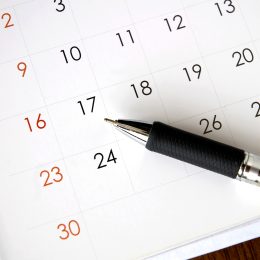
Buses steadily starting and stopping along subdivision streets signal the start of the season’s school day schedules.
As teens settle back into the school year, they’re also getting used to their afterschool routines: fall sports, homework or part-time jobs. Regardless of when teenagers arrive home, there are steps they can take to minimize their electricity use.
Open curtains for natural light.
As teens get ready to do homework, they may instinctively turn on all the lights in the house. Yet energy can be saved by leaving lights off and opening blinds and curtains instead. The sun can often provide enough needed light naturally, saving electricity. This should only be done when it’s cool; if it is still hot outside and the air conditioner is turned on, then curtains should remain closed to keep the outside heat from coming in. (More heat coming in means more work for the AC!)
Turn on fans instead of cranking up the air conditioner.
It may be instinct to just let the thermostat control the climate in the house. However, if the afternoon is cool enough, teens can turn off the air conditioner and open windows and let fans circulate air. A breeze flowing through the house can make it comfortable without the AC.
Turn gaming systems and computers off and use power save modes.
Some people habitually leave devices on all day, even when not in use. Yet the standby modes for computers and gaming systems can use a surprising amount of electricity. Teens can save energy (and money) by turning off these devices. If they must be on, selecting a power save mode can minimize their energy use.
Recharge devices overnight so they are ready to go the next day.
Mobile phones, iPads and other devices with rechargeable batteries can be charged overnight so they are ready the next morning on a full charge. This is the most efficient use of the energy grid: electricity demand on the grid peaks in the afternoon and evening, and if you have time of use rates, every little watt used off-peak can help.
By taking simple steps, teens can benefit the environment and even save money by lowering their energy use. Contact your local electric co-op’s energy advisor for advice on steps you can take to improve your home’s energy efficiency.



